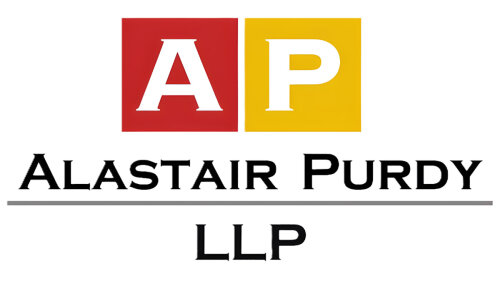Best Commercial Real Estate Lawyers in Galway
Share your needs with us, get contacted by law firms.
Free. Takes 2 min.
Free Guide to Hiring a Real Estate Lawyer
List of the best lawyers in Galway, Ireland
About Commercial Real Estate Law in Galway, Ireland
Commercial real estate in Galway, Ireland, involves the legal aspects of buying, selling, leasing, and managing non-residential properties such as office buildings, industrial developments, retail spaces, and other business-related properties. Galway, as a thriving hub for business and tourism, has a dynamic real estate market with opportunities for local and international investors. The legal framework governing commercial real estate transactions in Galway is influenced by both Irish national law and specific local regulations. As the city evolves, navigating these legal complexities requires expertise to ensure compliance and to protect property interests.
Why You May Need a Lawyer
There are several scenarios where engaging a lawyer specializing in commercial real estate could be beneficial:
- Negotiating the terms of a lease or purchase agreement to ensure favorable terms.
- Navigating complex zoning and land-use regulations specific to Galway.
- Resolving disputes between landlords and tenants, or between owners and neighboring properties.
- Conducting due diligence on a potential property acquisition to uncover hidden risks or liabilities.
- Handling property financing arrangements, such as mortgage agreements or partnership deals.
- Ensuring compliance with environmental laws and building standards.
- Facilitating the sale or transfer of a business that includes real estate assets.
Local Laws Overview
Key aspects of local laws relevant to commercial real estate in Galway include:
- Planning and Development Acts: These laws regulate land use, zoning, and development, ensuring properties are used according to local plans.
- Building Control Regulations: Compliance with these regulations is paramount to ensure safety and environmental standards are met.
- Landlord and Tenant Acts: These set out the legal framework for lease agreements, covering rights, and responsibilities of both parties.
- Environmental Protection Acts: Local and national legislation aim to safeguard the environment, affecting how properties are developed and maintained.
- Rates and Valuations: Commercial properties are subject to local business rates; understanding the valuation process is crucial for financial planning.
Frequently Asked Questions
What is the process for purchasing commercial property in Galway?
The process includes finding a suitable property, arranging financing, entering into contractual negotiations, performing due diligence, finalizing terms, and completing legal documentation with the help of a solicitor.
How is commercial property zoned in Galway?
Zoning in Galway is governed by local development plans that categorize land use for residential, commercial, industrial, and other purposes. It is crucial to consult these plans before proceeding with any property development.
Can I modify a commercial property without permission?
Modifications often require planning permission, particularly if they change the property's use or structure significantly. Consulting with a legal expert or planner is advisable.
What should I consider when negotiating a commercial lease?
Key considerations include lease term length, rent review clauses, maintenance responsibilities, and the possibility of early termination or renewal.
Are there specific environmental regulations affecting commercial properties in Galway?
Yes, both national and local regulations require properties to comply with certain environmental standards, particularly concerning waste management and emissions.
How are commercial property disputes typically resolved?
Disputes can often be resolved through negotiation or mediation, but may sometimes require formal litigation. Legal advice is crucial in determining the best approach.
What is stamp duty, and how does it affect commercial property transactions?
Stamp duty is a tax on property transactions. In Ireland, it is typically 7.5% for commercial properties, and it must be factored into the overall cost of acquiring property.
How do business rates work in Galway?
Business rates are taxes levied on commercial properties based on their valuation. The rates contribute to local services and are assessed annually.
Is it possible to change the use of a commercial property?
Changing the use of a property often requires planning permission and compliance with local zoning laws. Consulting with the local authority and a solicitor is essential.
What are my responsibilities for maintaining a commercial property?
Responsibilities typically include ensuring compliance with safety standards, maintaining structural integrity, and adhering to lease terms. Specific responsibilities are outlined in lease agreements.
Additional Resources
For further information and assistance, consider the following resources:
- Galway City Council: Provides information and guidance on planning, zoning, and development.
- The Law Society of Ireland: Offers a directory of solicitors who specialize in commercial real estate law.
- Property Services Regulatory Authority: Regulates and provides information on property services including estate agents and management agents.
- Local Environmental Offices: Ensure compliance with environmental regulations affecting properties.
Next Steps
If legal assistance is required, consider the following steps:
- Research and select a local solicitor specializing in commercial real estate law.
- Prepare all relevant documentation and details specific to your property situation.
- Schedule a consultation to discuss your needs and potential legal strategies.
- Follow your solicitor's advice to ensure compliance and protection of your property interests.
Lawzana helps you find the best lawyers and law firms in Galway through a curated and pre-screened list of qualified legal professionals. Our platform offers rankings and detailed profiles of attorneys and law firms, allowing you to compare based on practice areas, including Commercial Real Estate, experience, and client feedback.
Each profile includes a description of the firm's areas of practice, client reviews, team members and partners, year of establishment, spoken languages, office locations, contact information, social media presence, and any published articles or resources. Most firms on our platform speak English and are experienced in both local and international legal matters.
Get a quote from top-rated law firms in Galway, Ireland — quickly, securely, and without unnecessary hassle.
Disclaimer:
The information provided on this page is for general informational purposes only and does not constitute legal advice. While we strive to ensure the accuracy and relevance of the content, legal information may change over time, and interpretations of the law can vary. You should always consult with a qualified legal professional for advice specific to your situation.
We disclaim all liability for actions taken or not taken based on the content of this page. If you believe any information is incorrect or outdated, please contact us, and we will review and update it where appropriate.
















